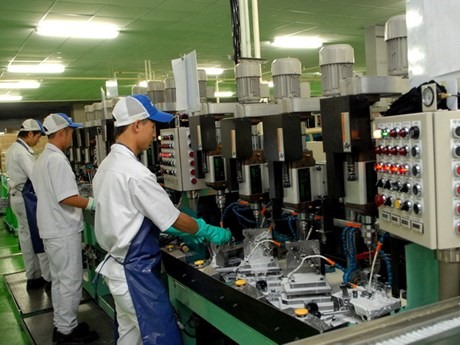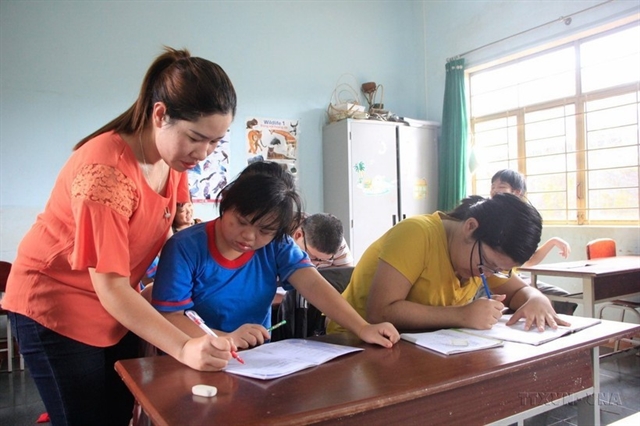 Economy
Economy

Việt Nam’s Manufacturing Purchasing Managers’ Index (PMI) in February fell for the third month in a row to 51.2, according to the latest reports from Nikkei and IHS Markit.
 |
| Việt Nam’s Manufacturing Purchasing Managers Index in February was down from 51.9 in January. — VNA/VNS Photo |
HÀ NỘI — Việt Nam’s Manufacturing Purchasing Managers’ Index (PMI) in February fell for the third month in a row to 51.2, according to the latest reports from Nikkei and IHS Markit.
Though the index was down from 51.9 in January and the lowest since March 2016, it remained above the critical 50-point threshold that separates expansion from contraction in manufacturing output.
According to the report, while both output and new orders rose at sharper rates in February, the headline index was pulled down by reductions in employment and stocks of purchases.
“International demand weakness held back the Vietnamese manufacturing sector in February. New export orders rose at the slowest pace in over three years and signs of softening demand led firms to scale back employment,” Andrew Harker, associate director at IHS Markit, which compiles the survey, said.
The report showed that the decline in staffing levels was the first in almost three years as manufacturers responded to relatively weak new order growth in recent months. The reduction represented a marked turnaround from a record pace of job creation in November 2018.
“Although new orders continued to rise, and at a faster pace than in January, the latest expansion was much slower than those seen towards the end of 2018. The rate of expansion in new export orders, meanwhile, eased to a 37-month low,” it said.
Production growth quickened in February and was solid, but the latest rise was below the average seen across 2018. Where output increased, panellists reported that customer demand had improved.
According to the report, despite cutting back on staffing levels, Vietnamese manufacturers were again able to reduce their backlog of work as new order growth remained relatively weak. In fact, outstanding business decreased to the greatest extent in almost a year.
Stocks of purchases fell for the first time in 11 months, in spite of continued growth of purchasing activity. Stocks of finished goods increased, albeit to the least extent in the current five-month sequence of accumulation. Some panellists reported raising inventory holdings in line with expectations of further new order growth, but others indicated that softer rises in new work in recent months had led to an accumulation of unsold products.
Manufacturers registered a slight rise in input costs for the second month running in February, with the rate of inflation well below the series average. With cost burdens increasing only modestly, there remained a lack of pressure on firms to raise selling prices. Output prices were lowered for the fifth time in the past six months as part of efforts to attract new business in a softer demand environment.
Manufacturers remained optimistic that output would increase over the coming year, with confidence fuelled by expected improvements in market demand and new order growth. That said, sentiment eased to a four-month low and was below the series average.
“The sector remained in growth territory, however, with Vietnamese manufacturers able to secure greater volumes of new work despite current challenges,” Harker said. — VNS




